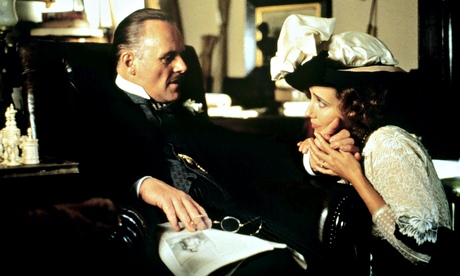
One may as well begin with the 15-year-old reader: at a single-sex, military-flavoured boarding school; parents divorced (father an army officer, mother a book-reading German); fascinated by politics; priggish; barely spoken to a girl; glorying in his most recent birthday coinciding with England winning the World Cup; glorying too in never again having to set foot in a science lab; given Howards End to read by a nice, shy English teacher.
Reading it had all the force and shock of revelation, making sense of the world just at the moment I was most susceptible to having the big picture explained to me. That explanation – or the part that got through to me – was essentially binary. On the one hand there were life’s Schlegels: cultured, searching for truth, believing in the supremacy of personal relationships. On the other hand there were life’s Wilcoxes: people of prose not poetry, deeply pragmatic, living by a code of “telegrams and anger”. Looking around at my fellow pupils, at my teachers, at my family, it all made compelling sense – whereas EM Forster’s supreme, transcending message of “only connect” had little impact by comparison.
Perhaps the rest would have followed anyway, but now I had my founding text. Over the next few years I became friends with boys far more creative and imaginative than me; made the usual progression from the Beatles to Dylan via Donovan; listened religiously each Sunday afternoon to John Peel’s Top Gear; co-founded the Wellington College Progressive Music Society (I know, I know); and developed a deep, atavistic loathing for the philistine rugby culture that dominated the school.
Then came the 1970s and the outside world. At Oxford, I would still have considered myself a fully signed-up Schlegel, but by the mid-1970s, beginning to make my way in London as a historian, liberalism was no longer enough. It had been a solemn moment when in 1973, just after leaving university, one of my best friends had handed me a copy of Louis Althusser’s For Marx; and not long afterwards, writing what became my first book, an explicitly socialist study of the Victorian working class that had no truck with reformist verities or achievements, the shadow over my shoulder belonged not to Forster but to EP Thompson, with Eric Hobsbawm lurking just behind.
Yet in the event, Howards End was about to change my life for a second time. In 1978, approaching my late 20s, I was in a state of confusion: anxious to find a new direction as a historian, keen to get stuck into something big and try to make it my own, but wholly unclear about what it should be. Eventually, the subject into which I decided to parachute as a complete outsider was the City of London. Forster’s novel was not my only literary inspiration – there was also Pooter the City clerk, the ghastly Rex Mottram in Brideshead Revisited, George Gissing’s The Whirlpool – but it loomed the largest. Not just stolid Henry Wilcox himself (whose Imperial and West African Rubber Company, full of “ledgers and polished counters and brass bars”, is near St Paul’s Cathedral), but its powerful sense of the phenomenon of the Edwardian City (epitome of the new, money-oriented cosmopolitanism Forster so loathed).
Over the next two decades I immersed myself in the Square Mile, an immersion that culminated in a four-volume history of the City during the 19th and 20th centuries. It came to represent my belated attempt to take on board “only connect”: to a greater or lesser extent I remained critical throughout of the City and its inhabitants; but I also realised (thanks in part also to John Galsworthy and his Forsytes) that those practical men were flesh-and-blood humans whom I needed to portray in as three-dimensional a way as possible.
In the volume covering the City’s golden years of 1890-1914, my nod of homage was to have the opening five words the same as in Howards End. And when in 2001 the final volume was published and I was invited by a journalist to a “lunch with” interview, my choice of restaurant was easy. “Saddle of mutton,” says Henry authoritatively, as he orders for Margaret Schlegel and himself at Simpson’s in the Strand.
I am now in my 60s. It is almost half a century since I first read Howards End, and there is a larger, more important sense in which Forster still matters to me. It may sound akin to Basil Fawlty and a degree in the bleedin’ obvious, but I find myself becoming ever more aware that it is intolerance – religious, nationalist, ethnic – that is the worst evil and does the most damage. Tolerance is the ultimate lesson of not only Howards End but also, I have come to believe, of all great novels, which uniquely among the art forms have the ability to get inside other people’s heads. The historical novelist Richard Hughes once remarked that Hitler would not have been Hitler if he had read novels.
Honesty compels me to finish with a quasi-Forsterian anecdote. One Wednesday evening in the early 1970s, the BBC was showing a dramatisation of Howards End. A handful of students were watching it in the television room at my Oxford college, and there was about a quarter of an hour to go when a larger cohort of students marched in demanding to watch the football on ITV. Numbers and might carried the day; the defeated handful left in high dudgeon.
Reader, I was one of the invaders, and I have often wondered since whether it takes a Wilcox to understand a Wilcox.

